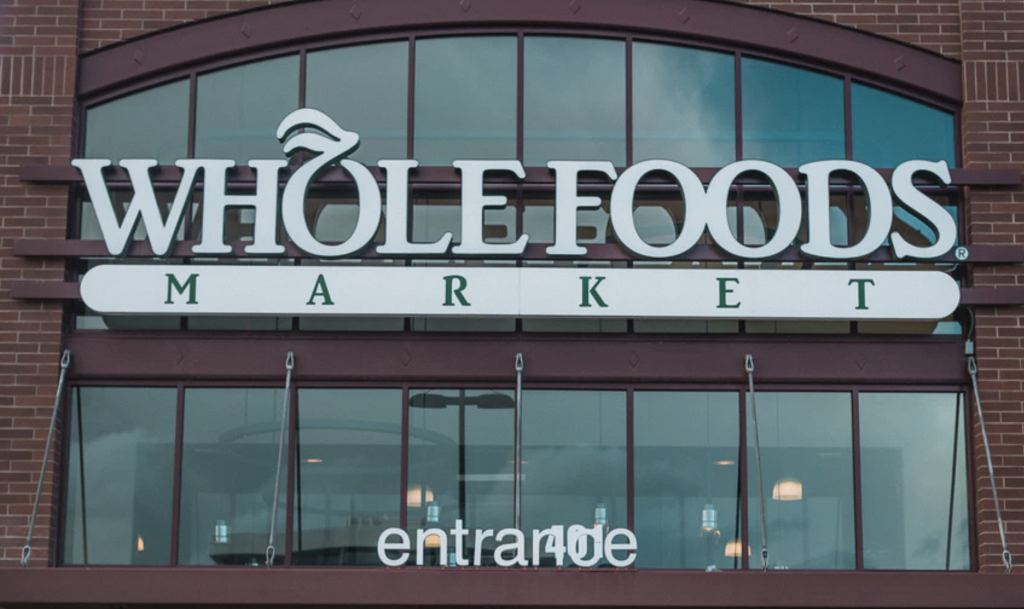Whole Foods and its parent company Amazon prevailed against racial bias allegations lodged by nearly 30 current and former employees, who accused the supermarket chain of discrimination and retaliation this summer. In a decision on Friday, Judge Allison Burroughs of the US. District Court for the District of Massachusetts determined that Whole Foods and Amazon did not run afoul of federal law by “disciplining” Whole Foods employees across the U.S. “for wearing Black Lives Matter masks” during their shifts in violation of the company’s dress code.
According to the proposed class action complaint that more than two dozen Whole Foods employees filed in a federal court in Massachusetts in July, “Whole Foods and its parent company Amazon have professed to support the Black Lives Matter movement.” However, the plaintiffs asserted that Whole Foods and Amazon engaged in discrimination in violation of Title VII of the Civil Rights Act of 1964 “both against Black employees who are participating in and leading the employee protest,” and against other non-Black employees “who are associating with and advocating for Black Whole Foods employees and protesting racism and discrimination in the workplace by wearing the masks and showing support for their Black co-workers.”
The plaintiffs took issue with Whole Foods’ BLM ban, alleging that while the company’s dress code policy “nominally prohibits employees from wearing clothing with visible slogans, messages, logos, or advertising that are not company-related,” the policy “had not [been] previously strictly enforced,” with the company failing on numerous occasions to discipline “employees for wearing other messages, including political messages.”
For example, the plaintiffs argued in their complaint that “Whole Foods employees have worn apparel bearing various logos, such as those of local sports teams,” and have “commonly worn Pride flags in support of their LGBTQ+ coworkers without being disciplined by Whole Foods.” In particular, the plaintiffs argued that “employees have not been sent home or received discipline for wearing Pride pins or apparel.”
Since Whole Foods took action against employees that were wearing BLM masks, including sending some employees “home without pay,” and “threaten[ing] employees with termination if they continue wearing the masks,” the plaintiffs claimed that Whole Foods was not merely enforcing a neutral dress code requirement, but was targeting employees who were protesting “racism and police violence against Blacks and show[ing] support for Black employees.”
Whole Foods and Amazon responded to the plaintiffs’ racial discrimination and retaliation lawsuit in August, stating in a motion to dismiss that plaintiffs “wrongfully presume that Title VII, which addresses discrimination on account of an employee’s race, entitles them to display messages on their masks or clothing in the workplace.” What the statute does prohibit, per Whole Foods, is “discrimination against an employee on account of his or her race,” which is not what happened here, and “is not what the plaintiffs are alleging.”
In her January 5 decision, Judge Burroughs held that even if “the allegations in the complaint” are true, the companies were “at worst, selectively enforcing [their] dress code” in order “to suppress certain speech in the workplace.” As “unappealing that might be,” the judge stated that that “is not conduct made unlawful by Title VII,” which she noted, “does not protect free speech in a private workplace,” and thus, that Whole Foods and Amazon did not violate federal civil rights law.
Not an across-the-board win for Whole Foods and Amazon, the court has given one of the plaintiffs the go-ahead to pursue a retaliation claim against the defendants.
In a statement provided to Bloomberg, the plaintiffs’ counsel Shannon Liss-Riordan said, “The court adopted a very narrow frame for analyzing race discrimination, which goes against the tide of caselaw recognizing the critical importance of eradicating race discrimination from worksites across our country,” noting that an appeal of the lower court’s decision is likely.
*The case is Suverino Frith et al v. Whole Foods Market Inc, 1:20-cv-11358 (D. Mass.).











